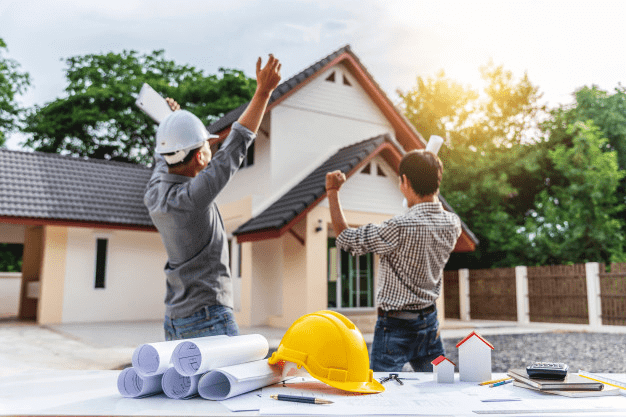When constructing a new home, everyone expects the property to be robust, cosmetically sound, and safe. And to ensure that new construction inspection comes in to verify that every phase of construction is accomplished following the highest standards and without violating building codes. From foundation to final finishes, this thorough process covers everything that identifies hidden issues to address them promptly.
However, before hiring a professional for inspection and closing a deal with them, you need to understand the overall process and how things would work. Scroll below to have a detailed view of the process of new construction inspection and the significance of hiring an expert.
[ez-toc]
Understanding the New Construction Inspection Process
The inspection process begins before the foundation is poured and identifies these issues:
- Ensures the site has been properly prepared, including grading and excavation.
- Checks the placement and quality of footings and rebar, which provide structural support.
- Verifies that forms are correctly placed and dimensions are accurate according to the plans.
- Identifying issues at this stage prevents foundational problems that could affect the entire structure of the home.
Pre-Drywall (Framing) Inspection
This new home inspection occurs after the framing, plumbing, electrical, and HVAC systems are installed but before drywall is put up. In this evaluation process, home inspectors cover these aspects:
Framing: Examines the structural framework for proper installation and soundness.
Plumbing: Checks rough-in plumbing, including pipes, vents, and fixtures, for correct installation.
Electrical: Inspects rough-in electrical work, including wiring, outlet placement, and breaker panel setup.
HVAC: Assesses the installation of HVAC ductwork, vents, and units.
This stage allows inspectors to see behind the walls and address issues that would be hidden once the drywall is installed.
Insulation Inspection
When the insulation is installed, its effectiveness must be evaluated. During this phase, the professional will Verify the correctness of the type and amount of insulation that has been installed in walls, ceilings, and floors. They also ensure vapor barriers are properly installed to prevent moisture issues. Finding and addressing these issues makes your space energy-efficient and comfortable.
Drywall and Interior Inspection
This inspection is done after the drywall is installed and finished but before final fixtures and finishes are in place. It includes:
- Checks for proper installation, including seams, joints, and finishes.
- Verifies that walls and ceilings are straight and correctly aligned.
- Ensures that the interior structure is sound and ready for final finishes.
Final Inspection
Once construction is complete and the home is ready for occupancy, home inspectors will use high-end tools such as thermal imaging cameras, moisture meters, and others to detect problematic areas. Here are the common findings:
Exterior: Inspect the roof, siding, windows, doors, and landscaping for proper installation and any signs of damage.
Interior Finishes: Checks walls, ceilings, floors, cabinetry, and fixtures for quality craftsmanship and proper installation.
Systems Testing: Testing of electrical, plumbing, and HVAC systems for functionality and safety.
Safety Features: Verifies that smoke detectors, carbon monoxide detectors, and fire exits are in place and operational.
This final inspection confirms that the home is complete, safe, and ready for occupancy.
Importance of Hiring a Qualified Inspector
Experience and Professionalism
When it’s about investing in the inspection of your new construction project, you can’t rely on untrustworthy contractors! You need inspectors who have prior experience working on similar projects and bringing efficient outcomes.
Experienced inspectors can spot problems that might be overlooked by an untrained eye, such as minor structural defects, improper installations, or potential future issues.
Besides, they are familiar with local building codes and industry standards, ensuring your home meets all legal requirements.
Thorough and Comprehensive Inspections
Inspectors follow a systematic inspection process that covers all critical aspects of the home, including foundation, framing, electrical systems, plumbing, HVAC, roofing, and interior finishes. This thorough examination ensures that every area is noticed.
They provide detailed inspection reports with findings, photographs, and recommendations. These reports empower you with comprehensive information about the home’s condition, enabling informed decisions and negotiations with the builder.
Legal and Safety Compliance
A qualified inspector ensures that your new home complies with all relevant legal and safety standards. Here’s what they look for:
Building Codes: Verifying that the construction meets local building codes and regulations.
Safety Standards: Ensuring that all systems, from electrical wiring to HVAC, are safe and properly installed.
Warranty Issues: Identifying potential warranty issues early, allowing you to address them with the builder within the warranty period.
Beyond the Report
Understanding the Report: The inspection report will detail identified issues, their severity, and potential repair solutions. Don’t be afraid to ask the inspector to clarify any technical terms or areas you find confusing.
Repair Roadmap: The professional contractors will help you with the right solutions for the identified issues. This helps you create a budget and plan for addressing the issues.
Conclusion
An experienced inspector helps you examine every stage of construction – from framing to final finishes. New home building inspections identify potential problems early on, letting you negotiate with the builder for repairs before closing. If you don’t want to settle for anything less than a perfect start in your new home, it’s vital to invest in a new construction inspection.



